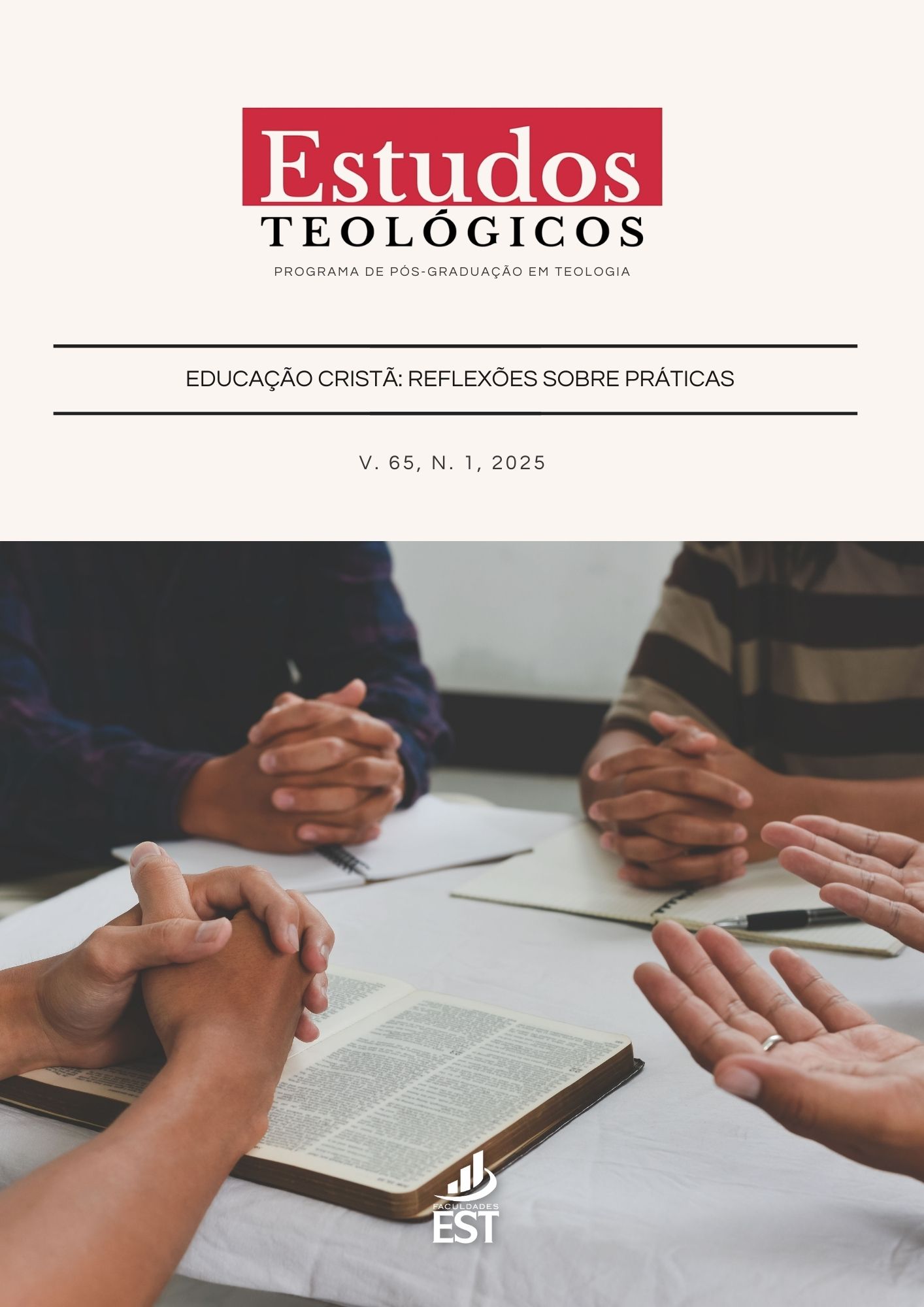Da confessionalidade inclusiva ao identitarismo confessional
Uma reflexão teológico-moral crítica sobre o sentido da educação católica
DOI:
https://doi.org/10.22351/et.v65i1.3466Palavras-chave:
Educação, Confessionalidade, Identitarismo, Teologia MoralResumo
O presente artigo versa sobre o desafio enfrentado pela educação católica diante dos questionamentos de grupos católicos neoconservadores acerca de sua fidelidade à identidade confessional. Sabe-se que o mundo contemporâneo é marcado pela afirmação de visões de mundo, de ser humano, de ética e de educação que rompem com um único modelo de referência. No campo do ensino e da educação esta heterogeneidade se faz presente. As próprias redes sociais e os influencers fazem questão de disseminar as diferenças a ponto de aumentar a conflitualidade e o embate de perspectivas. Nesse contexto, coloca-se o dilema entre duas perspectivas de educação católica: uma perspectiva dialógica e outra de caráter identitário. A análise se desdobrará em três momentos. No primeiro, apresentar-se-á o fenômeno da identidade confessional e do identitarismo confessional no cenário educativo atual. Posteriormente, buscar-se-á destacar o sentido teológico de uma educação confessional católica, a partir da tradição educativa da Igreja, entre muitas confusões e provocações. Por fim, endossar-se-á, de modo reflexivo, o sentido da escola confessional católica e sua missão no contexto do pluralismo educacional. Destarte, abordar este tema é de extrema importância na atual conjuntura eclesial e social, pois o conteúdo e o modo de se propor a educação são fundamentais no que tange ao diálogo sincero com a realidade por parte da Igreja.
Downloads
Publicado
Como Citar
Edição
Seção
Licença
Política de Acesso Livre
A Revista Estudos Teológicos é de acesso livre, o que significa que todo o conteúdo está disponível gratuitamente, sem custos para o usuário ou sua instituição. Os leitores podem ler, baixar, copiar, distribuir, imprimir e compartilhar os links para os textos completos dos artigos, desde que com a devida atribuição de autoria e fonte original, conforme a licença abaixo.
LICENÇA CREATIVE COMMONS
Esta obra está licenciada sob uma Licença Creative Commons Atribuição-NãoComercial 4.0 Internacional (CC BY-NC 4.0).












